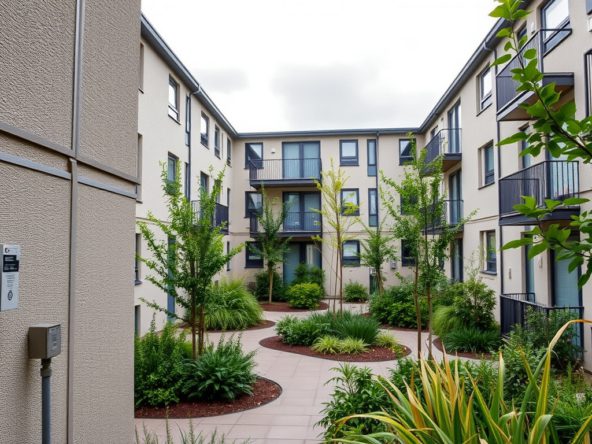In recent years, the conversation around housing affordability has taken center stage in the UK, leading to a growing interest in policies such as
‘rent capping UK.’ This approach aims to regulate rental prices, ensuring that housing remains accessible to everyone, particularly those in vulnerable situations. Understanding the intricacies of rent capping is crucial for tenants, landlords, and policy makers alike. This article delves into the purpose of rent capping, current legislation, its effects on various stakeholders, and the challenges surrounding its implementation. By exploring the future of housing policy in the UK, we hope to shed light on an important aspect of the housing market that directly impacts the lives of many.
Key Takeaways
- Rent capping in the UK aims to maintain affordable housing for tenants.
- Current legislation regarding rent capping is designed to regulate rental prices and protect tenants.
- The effects of rent capping impact both tenants’ financial stability and landlords’ profitability.
- Implementing rent capping presents challenges, including potential pushback from landlords and market imbalances.
- Future discussions around housing policy will continue to shape the landscape of rent capping in the UK.
Introduction to Rent Capping in the UK
The concept of rent capping in the UK has emerged as a significant topic of discussion among tenants, landlords, and policymakers alike. Rent capping UK refers to the practice of setting a limit on the amount that landlords can charge tenants for rental properties, aiming to make housing more affordable and accessible. As the cost of living continues to rise, many are advocating for more stringent regulations to prevent excessive rent increases that can lead to housing insecurity. In this landscape, it is essential to understand the implications of rent capping on the rental market, its potential benefits for tenants, and the concerns it raises for landlords. With varying approaches across different regions, the debate continues to evolve, making it crucial for those looking for rental opportunities to stay informed on these changes and how they may impact their next move. If you’re seeking to find your ideal rental space amidst these developments, be sure to explore hmoreporter.co.uk to discover a diverse range of available rooms across the UK.
The Purpose of Rent Capping: Ensuring Affordability
Rent capping in the UK is a critical measure aimed at ensuring housing affordability for tenants across the nation. This policy seeks to limit the amount landlords can charge for their rentals, thus preventing excessive rent increases that can displace families and individuals from their homes. By imposing a cap on rental prices, the government aims to create a more stable rental market that benefits both tenants and landlords, reducing the risk of homelessness and providing greater security for renters. As the demand for housing continues to rise, understanding the implications and benefits of rent capping UK is essential for anyone navigating the rental market. By educating yourself about these regulations, you can better know your rights and the broader context of housing affordability in the UK. For those looking for their next living space, resources like hmoreporter.co.uk can help you find a range of options that fit within these rent controls, ensuring you find a home that meets both your needs and budget.
‘Housing is a basic human need, and we must strive to ensure that everyone has access to affordable housing.’ – Unknown
Current Legislation Surrounding Rent Capping
In recent years, the issue of rent capping in the UK has gained significant attention as housing affordability continues to be a pressing concern for many tenants. Current legislation surrounding rent capping seeks to address the rising costs of rent and provide a framework for regulating rental prices across different regions. The UK government has been exploring various proposals, including potential limits on annual rent increases and measures aimed at enhancing tenant protection. Notably, areas with high demand and limited housing supply face unique challenges, prompting local councils to advocate for tailored rent capping strategies. As discussions evolve, it’s crucial for both renters and landlords to stay informed about these developments. To learn more about the implications of rent capping in the UK and find your next ideal room or home, explore hmoreporter.co.uk, where you can discover a range of options that suit your needs.
Effects of Rent Capping on Tenants and Landlords
Rent capping in the UK has emerged as a critical topic of discussion among tenants and landlords alike, with significant implications for the housing market. For tenants, the introduction of rent caps can provide much-needed financial relief, promoting stability in their monthly budgets and protecting them from steep rent increases that can occur in a competitive rental market. This can make housing more accessible, especially for low to middle-income families struggling to make ends meet. On the other hand, landlords may face challenges with rent capping, as it can limit their ability to adjust rental prices in accordance with market fluctuations and maintenance costs. Furthermore, there is concern that stringent rent caps might deter investment in rental properties, potentially leading to a decline in the quality of housing stock over time. Understanding the nuanced effects of rent capping in the UK is essential for both parties as they navigate the ever-evolving rental landscape. If you’re looking to find your next room in the UK, consider exploring hmoreporter.co.uk for a comprehensive view of rental options that suit your needs, all while keeping in mind the broader implications of rent policies.
Challenges and Controversies of Implementing Rent Capping
In recent years, the concept of rent capping UK has gained traction among policymakers and residents alike, aiming to tackle the housing affordability crisis. However, implementing effective rent controls is fraught with challenges and controversies. Critics argue that rent capping can lead to a reduction in the quality of rental properties, as landlords may struggle to maintain homes or feel disincentivized to invest in new developments. Additionally, there is the concern that such measures could shrink the rental market, leading to a scarcity of available homes. Proponents counter that, with careful implementation, rent capping can provide immediate relief to tenants facing rising costs while still encouraging new housing developments through balanced regulations. As this debate continues, it’s crucial for renters and stakeholders to stay informed and consider all perspectives on this significant issue in the UK housing landscape.






